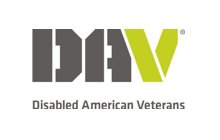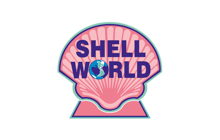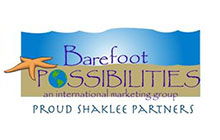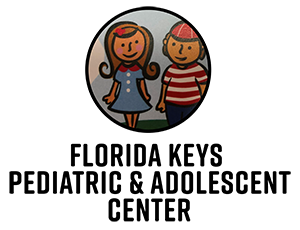THE DOLPHINS
No Breeding • No Swim-with-Dolphins Programs • No Shows
We are committed to the well-being and future of our dolphins.
Our dolphins’ lives are as important as our own.
IDC does not support taking dolphins from the wild or breeding in captivity.
We give them the respect they inherently deserve and integrity they warrant.
We do not believe our dolphins exist for the sake of financial profit. Seeing that they are not wild dolphins and cannot be released, it is our responsibility to support and enrich their lives as much as possible while bringing purpose to their lives.
IDC dolphins do not participate in swims for entertainment. Our leadership actively strives to seek out a larger ocean habitat where they can live a life that resembles something as close as possible to living in the wild.
The cost of our programs increased for the first time since 1997 this year, due to the increased expense of caring for our dolphins while also providing financial assistance to those in need of support to participate in our programs. IDC is not a money-driven organization. We are a not-for-profit organization with a small staff and volunteer board of directors. All funds provide to those in need, educational programs, and care to our dolphins.
We are responsible for giving our dolphin family the best life possible.
They currently live in the warm ocean waters of Key Largo, Florida.
Our facility exceeds all of the current USDA requirements, and our dolphins receive the most progressive practices in veterinary medicine.
IDC leadership is determined to find solutions to give our dolphins an even more amazing life.
They live in the ocean, but that’s not enough. We want their home to be larger. It must be bigger. And we continue to seek out a larger ocean habitat for them.
We share this beautiful planet with many humans and animals alike, and it is our responsibility to care about it all—not just about ourselves. Help us keep it beautiful for everyone.
We are the future.
IDC is opposed to the capture of wild dolphins and any form of breaking up a family.
We practice a strict no-breeding policy.
It is our responsibility to give these creatures a life of purpose and of meaning.
IDC dolphins have only lived in the ocean water facilities at IDC.
There is no evidence to support that dolphins living in captivity can survive in the wild. The reality is that captive marine animals are our responsibility, and it is up to us to give them the most natural and stimulating life possible. This requires funding, thoughtful solutions, and resourcefulness.
Seeing that these dolphins deserved a better life, IDC has worked diligently to find ways to bring the financial support necessary for their care through fundraising so that our dolphins would not have to participate in public-swim programs or theme-park entertainment.
IDC is now determined to find even better solutions to give them a life as close to being in the wild as possible. We want them to have a larger ocean habitat to live out the rest of their days. In order to accomplish this, we will need your help. When you visit, you will learn what you can do to help the future of marine mammals, both captive and living in the wild.
Dolphin Cam
ZERO EXPLOITATION
We create a safe environment for our dolphins. We do not offer public dolphin swims, and our organization does not raise money through dolphin shows or displays of animal-driven entertainment.
MEET THE FAMILY
Squirt
Birthday: THE MONTH OF MAY!
We decided that she deserves it.
Relationships: Mother to Fiji, Lotus, Tashi, and Dalai
Sarah
Birthday: Unknown; permitted and acquired from a different facility
Relationships: Mother to Bella and Grace
Bella
Birthday: November 3, 2000
Relationships: Daughter of Sarah and Fonzie
Fiji
Birthday: June 25, 2004
Relationships: Son of Squirt and Fonzie
Grace
Birthday: July 11, 2008
Relationships: Daughter of Sarah and LB
Lotus
Birthday: August 27, 2008
Relationships: Daughter of Squirt and Bob
Tashi
Birthday: August 13, 2012
Relationships: Son of Squirt and Bob
Dalai
Birthday: September 2, 2014
Relationships: Daughter of Squirt and Bob
MORE ABOUT SARAH
After Sarah’s years of helping humans, doctors and veterinarians from around the globe teamed up to perform a groundbreaking procedure that changed her life forever.
Sarah received the first-ever airway expansion operation performed on a dolphin.
Life of Our Dolphins
In 1997, our two “old ladies,” Sarah and Squirt, were residing at a commercial facility, participating in public swim programs. The founders of IDC worked to acquire these animals with the intent to provide them with a very different kind of life.
Today, Sarah, Squirt, and their six children focus
100% on helping individuals with special needs of all sorts,
engaging in educational programs and scientific research.
Learn More
If you have any questions about the care of our dolphins or our conservation efforts, we encourage you to contact us directly.

My daughter is nonverbal, has severe Autism, and struggles with OCD and anxiety. I cannot say enough about what this program has achieved, and the progress I see each year.”
-IDC Family
Our Donors

General Contact
Hours of Operation
Mon. – Thurs.: 11:30am & 2:30pm
Fri. – Sun.: Call for times
Mon-Fri 8AM-5PM
Sat-Sun 10AM-4PM








































